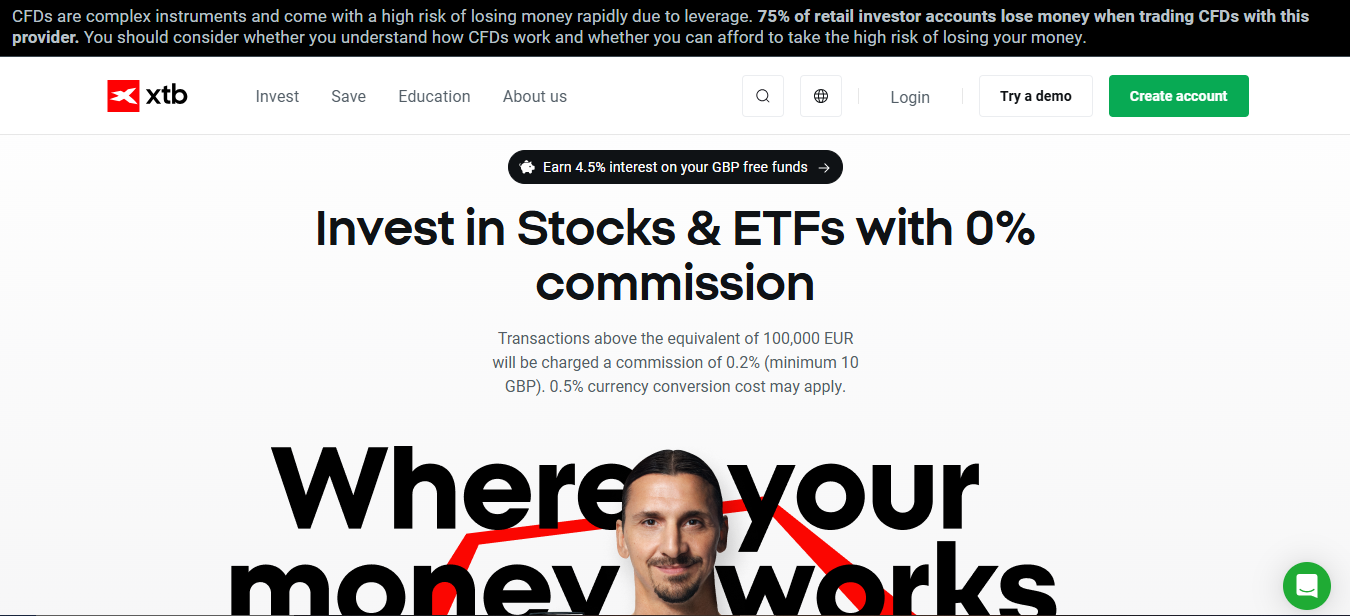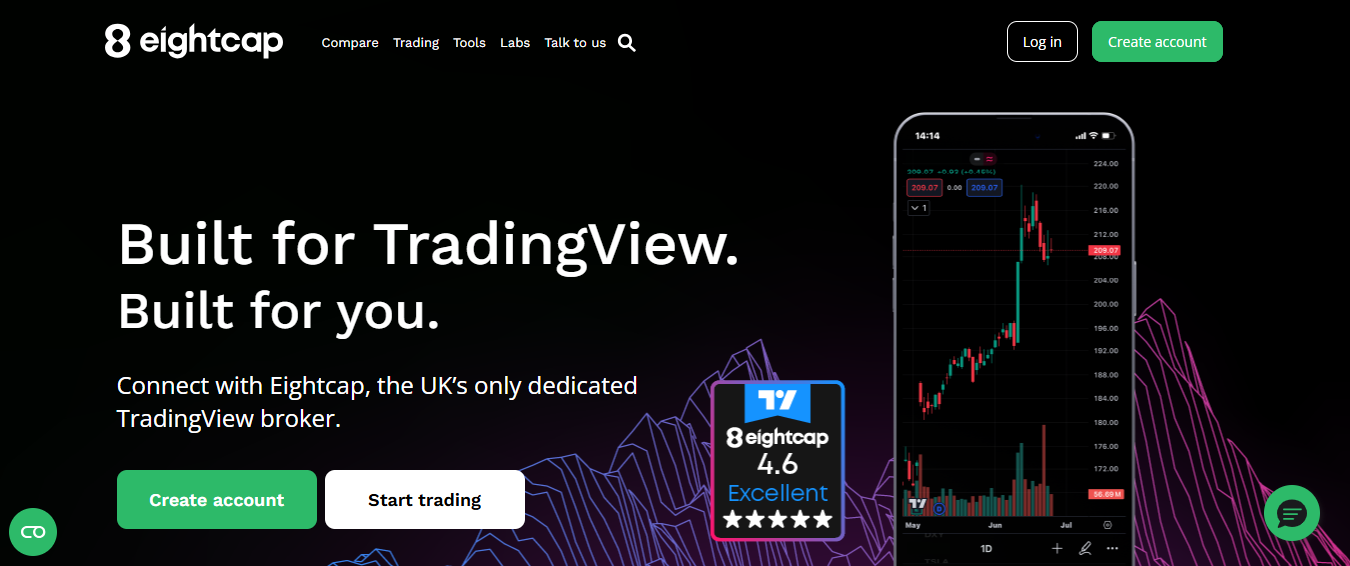Over the past decade, cryptocurrency trading in the United Kingdom has experienced significant growth, transitioning from a niche interest to a mainstream financial activity. An estimated 9% of the UK population, or one in every ten adults, now owns cryptocurrency, according to a 2025 Finder survey, translating to nearly 7 million users.
Crypto brokers play a crucial role in simplifying access to digital asset markets. They offer a streamlined experience that removes the complexities of blockchain wallets, decentralised exchanges, or technical barriers. This makes them particularly attractive to first-time investors who require a secure and intuitive entry point. At the same time, experienced traders are increasingly turning to brokers that offer enhanced trading tools, lower spreads, advanced charting, and faster order execution capabilities, often lacking in basic retail platforms. There is also a growing segment of FCA regulation-conscious investors who prioritise platforms that meet the UK’s stringent financial regulatory standards. It provides an added layer of trust, legal recourse, and consumer protection, which is particularly important in an industry still facing scrutiny for fraud and security breaches. At present, nearly six in ten people who are aware of cryptocurrency remain uncertain about its security, with 40% of active crypto owners also expressing doubts about the reliability of the technology.
This article aims to provide a clear and comprehensive guide to navigate the selection process by presenting an in-depth analysis of the 5 best UK crypto brokers. It compares each platform’s key offerings, including fee structures, trading features, regulatory status, security, and user experience.
Top UK Crypto Brokers Reviewed
eToro

eToro is a popular multi-asset brokerage platform based in Tel Aviv, Israel, with regulated operations in the UK through eToro (UK) Ltd, which is authorised and regulated by the Financial Conduct Authority (FCA). Originally known for stock and forex trading, the platform has become a leading name in crypto trading due to its robust platform, strong regulatory credentials, and beginner-friendly features. It offers a seamless user interface, high liquidity, and access to real-time market data, making it suitable for both novice and experienced traders. eToro is widely respected for its CopyTrader system, which allows users to replicate the portfolios of successful investors, making it ideal for those new to crypto markets. Security is a core focus, with cold storage of crypto assets, two-factor authentication (2FA), and FCA compliance adding layers of protection for UK users.
Pros:
- FCA-regulated, providing a high level of investor protection.
- CopyTrader feature to replicate professional trading strategies.
- User-friendly interface, suitable for beginners.
- Unified access to digital and traditional asset classes.
- Stock lending program to earn extra income.
- Free $100,000 demo account for risk-free learning.
- Integrated crypto wallet for secure asset management.
Cons
- Higher spreads compared to some advanced trading platforms.
- $10 monthly fee after 12 months of inactivity.
- Limited options for crypto withdrawals to external wallets.
Tradable Coins
Bitcoin (BTC), Ethereum (ETH), Cardano (ADA), XRP, Litecoin (LTC), Solana (SOL), Dogecoin (DOGE), Polkadot (DOT), Avalanche (AVAX), Uniswap (UNI), Chainlink (LINK), and over 70 others.
Minimum Deposit (UK):
£50
Fees:
A 1% fee is applied to trades involving ETFs, real stocks, and cryptocurrencies, while a 2% fee is charged for transferring crypto assets to the eToro Money crypto wallet.
Deposit/Withdrawal Methods
Bank transfer, debit/credit card, e-wallets like PayPal, Skrill, Neteller, and eToro money account.
Link: https://www.etoro.com/
XTB

XTB is a globally recognised brokerage firm headquartered in Warsaw, Poland, with a strong presence in the UK market through its FCA-authorised entity, XTB Limited. It is widely known for its comprehensive trading platform, xStation 5, which provides an intuitive user experience, real-time market analysis, and advanced charting tools. While XTB is traditionally known for forex and Contracts for Difference (CFD) trading, it has established itself as a reliable option for crypto investors looking to gain exposure to major cryptocurrencies via CFDs. The broker offers deep liquidity and competitive spreads, which are essential for fast and efficient trade execution, especially in volatile crypto markets. Furthermore, client funds are held in segregated accounts and protected under the Financial Services Compensation Scheme (FSCS), enhancing trust and security for UK-based traders.
Pros
- Regulated by the FCA and other Tier-1 authorities.
- Intuitive and feature-rich xStation 5 trading platform.
- No minimum initial deposit required to open an account
- Strong educational resources and market analysis tools
- Segregated client accounts and FSCS protection up to £85,000
Cons
- Only crypto trading via CFDs is available (not spot trading)
- Limited number of supported cryptocurrencies compared to dedicated crypto exchanges
Tradable Coins (CFDs)
Bitcoin (BTC), Ethereum (ETH), Litecoin (LTC), Ripple (XRP), Stellar (XLM), and around 40 crypto CFDs.
Minimum Deposit
£0 (no minimum required).
Fees
No commission is charged on crypto CFD trades, though variable spreads and overnight rollover fees (Swaps) are applicable.
Deposit/Withdrawal Methods
Bank transfer, credit/debit cards, e-wallets like PayPal, Skrill, Neteller
Link: https://www.xtb.com/en
Interactive Brokers

With its main office in Greenwich, Connecticut, Interactive Brokers (IBKR) is a well-established global broker, widely active across the UK and Europe. Established in 1978, it is known for its institutional-grade trading platform, competitive pricing structure, and robust risk management tools. As a crypto broker, Interactive Brokers stands out for offering access to digital assets alongside a broad range of traditional financial instruments, including stocks, options, ETFs, and bonds, all through a single, integrated account. The platform is regulated by the UK’s Financial Conduct Authority (FCA) and adheres to stringent capital and compliance standards, offering a high level of safety and trust.
Pros
- Integrated trading platform offering both crypto and traditional assets.
- Trader Workstation for active traders, offering multi-asset tools across over 150 global markets.
- Advanced risk management tools and order types.
- Wide range of account types, including individual, joint, trust, IRA, and advisor-managed accounts such as Family Office, Advisor, Broker Client, and linked accounts.
- IBKR campus designed for continuous, user-driven learning.
Cons
- Interface may be complex for beginners
- Limited crypto withdrawal from Paxos or Zero Hash accounts to external wallets.
- No dedicated crypto trading interface.
Tradable coins: Bitcoin (BTC), Ethereum (ETH), Litecoin (LTC), Bitcoin Cash (BCH), and Solana (SOL).
Minimum Deposit: £0
Trading Fees: Charges are set at 0.12%–0.18% per trade, with zero spread markups or fees for asset custody.
Deposit/Withdrawal Methods
Bank wire transfer, direct bank linking, transfer from or to Wise Balance, and ACH transfers (in supported regions).
Link: https://www.interactivebrokers.com/
IG

IG is one of the most established trading platforms in the UK, known for its all-inclusive infrastructure, professional-grade tools, and long-standing reputation in financial markets. Founded in 1974 and headquartered in London, IG is a global leader in online trading, offering access to a wide range of financial instruments including forex, indices, commodities, and cryptocurrencies through Contracts for Difference (CFDs). The platform is authorised and regulated by the UK Financial Conduct Authority (FCA), which adds a high level of investor protection and legal transparency. IG stands out for its high liquidity, institutional-grade execution, and comprehensive charting tools, making it a preferred choice for both active and risk-conscious crypto traders. While IG is primarily designed for experienced traders, its user-friendly interface and educational resources make it accessible for beginners seeking a safe and regulated entry point into crypto trading.
Pros
- High liquidity and tight spreads for crypto CFDs
- Advanced trading tools and analytics via web, desktop, and mobile platforms.
- Negative balance protection and segregated client accounts.
- Comprehensive educational resources and market insights.
- Access to its own proprietary platforms as well as third-party options like MetaTrader 4 (MT4), ProRealTime, and L2 Dealer for advanced trading flexibility.
- Regulated by the FCA and listed on the London Stock Exchange (LSE).
Cons
- No support for direct cryptocurrency ownership (only CFDs).
- Limited crypto selection compared to other platforms.
- No staking or earning features.
Tradable coins (via CFDs):
IG supports CFD trading on a portfolio of 11 core cryptocurrencies, two cross-asset pairs, and a broad crypto index.
Minimum Deposit:
£0 minimum deposit for crypto trading.
Fees:
No commission is charged on trades, though spreads differ by asset, and overnight fees are applicable for leveraged positions.
Deposit/Withdrawal Methods
Debit/Credit Card, Bank Transfer, and Apple Pay.
Link: https://www.ig.com/uk/crypto
Eightcap

Eightcap has established a global reputation as a reliable multi-asset broker, particularly noted for its extensive crypto CFD portfolio and high-performance trading infrastructure. Based in Melbourne, Australia, the platform is regulated by both the Australian Securities and Investments Commission (ASIC) and the UK’s Financial Conduct Authority (FCA), ensuring strong regulatory oversight and investor protection. It is particularly popular among UK traders seeking access to a wide range of crypto CFDs combined with competitive spreads, high liquidity, and advanced trading tools. The top-performing crypto broker integrates seamlessly with MetaTrader 4 (MT4) and MetaTrader 5 (MT5) platforms, allowing users to execute sophisticated trading strategies with speed and precision. One of Eightcap’s distinguishing features is its partnership with TradingView and Capitalise.ai, providing both visual and automated trading capabilities with no coding required.
Pros:
- Over 100 cryptocurrency CFDs, including crypto-crosses and crypto indices.
- MetaTrader 4, MetaTrader 5, and TradingView integration.
- Advanced risk management tools and automated trading options via Capitalise.ai.
- FCA and ASIC regulated, ensuring high compliance standards.
- Negative balance protection and segregated client funds for enhanced security.
- Fast execution speeds suitable for scalping and algorithmic trading.
Cons:
- Only supports crypto trading via CFD; users cannot buy and hold actual cryptocurrencies.
- No proprietary trading platform; relies on third-party platforms (MT4/MT5).
Tradable Coins: Bitcoin (BTC), Ethereum (ETH), and over 100 others (crypto CFDs only).
Minimum Deposit: $100
Fees: Variable spreads that remain tight, no fees on deposits or withdrawals, subject to overnight financing charges.
Deposit/Withdrawal Methods
Bank transfer, Credit/Debit cards, Skrill, Neteller, PayPal (varies by region)
Link: https://www.eightcap.com/uk/
How to Choose the Right Crypto Broker: 5 Essential Tips
- Regulatory status and FCA authorisation.
- Asset availability and trading features.
- Fee structure and trading costs.
- User experience and platform usability.
- Security measures and protection.
FAQs
What’s the Difference between a Crypto Broker and a Crypto Exchange?
A crypto broker and a crypto exchange both facilitate the buying and selling of cryptocurrencies, but they operate differently. A crypto broker acts as an intermediary, offering users fixed prices for digital assets and often providing a more user-friendly interface, simplified transactions, and additional services such as portfolio management or fiat-to-crypto conversions. In contrast, a crypto exchange is a marketplace where users trade directly with one another, with prices determined by supply and demand. Exchanges usually offer advanced trading tools, lower fees, and greater asset variety, but may require more technical knowledge to navigate.
Which UK-available Crypto Broker Offers the Lowest Trading Fees?
Among the best cryptocurrency brokers available to UK traders, Interactive Brokers stands out for offering the lowest trading fees. With charges ranging from 0.12% to 0.18% per trade, and no spread markups or custody fees, it provides one of the most cost-effective solutions for crypto investors, particularly those with high trading volumes.
Which Crypto Broker Offers the Highest Crypto Leverage for UK Traders?
Among the platforms reviewed, Eightcap stands out as the UK crypto broker offering the highest leverage for cryptocurrency trading. As an FCA-regulated crypto broker, the platform provides access to over 100 crypto CFDs with leverage ratios of up to 1:30 for professional clients, which is among the most competitive in the UK market. Integration with MetaTrader 4, MetaTrader 5, and TradingView enhances the platform’s suitability for high-frequency and algorithmic traders focused on rapid and accurate trade processing. These features make Eightcap the top choice for UK traders seeking high-leverage crypto exposure.
Conclusion
Choosing the right crypto broker is a critical decision for cryptocurrency holders in the UK, as it directly impacts the security, cost-efficiency, and overall trading experience. Crypto investors must remain vigilant and prioritise brokers that offer solid security measures, transparent fee structures, and regulatory oversight to safeguard their assets and ensure peace of mind. In summary, selecting a trusted and reliable broker not only facilitates seamless access to cryptocurrency markets but also contributes significantly to long-term financial success and security.





 usdt
usdt bnb
bnb

